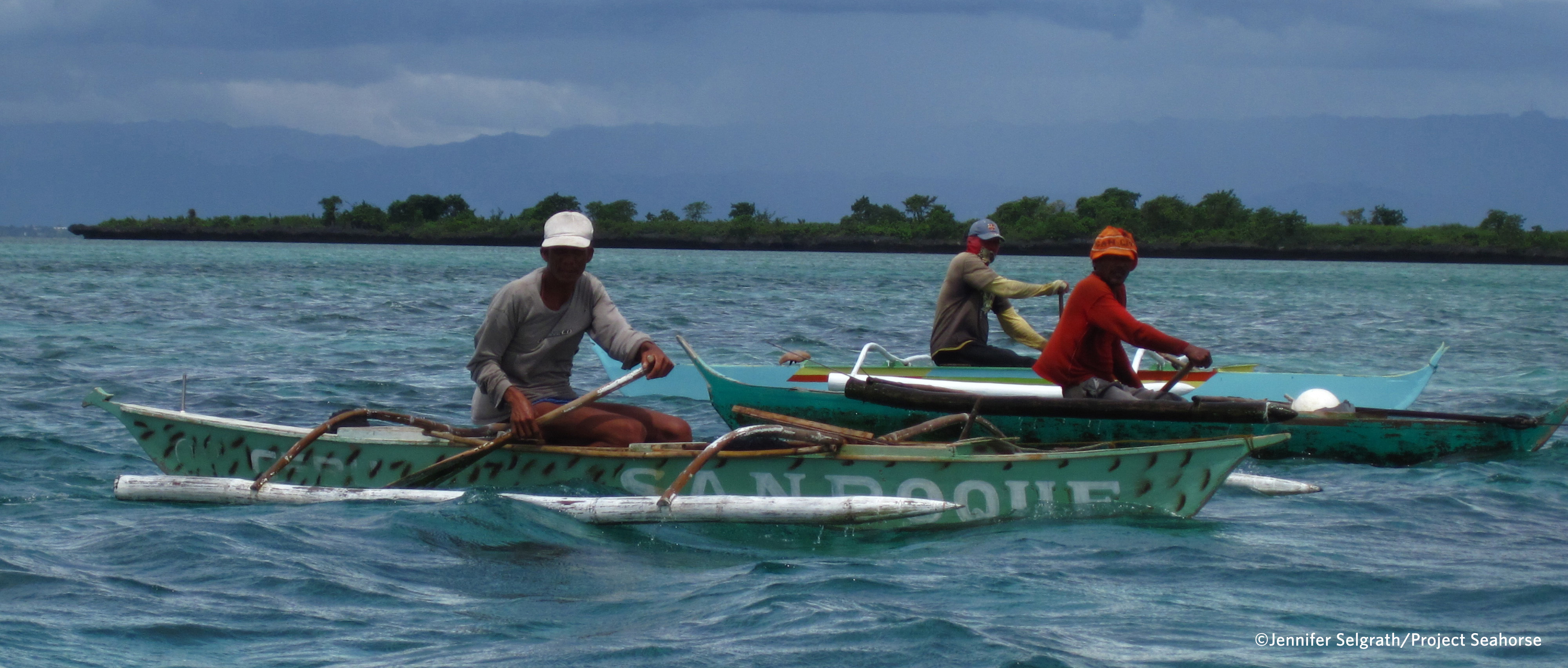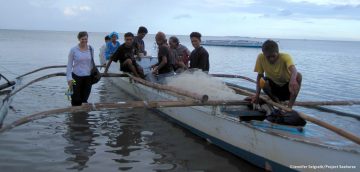
Hand line fishers on Danajon Bank
A new UBC study has found that small-scale fisheries may have a much larger impact on ocean ecosystems than previously thought, due to a lack of data on their development over time.

Dr. Jennifer Selgrath
“We found that the influence from small-scale fisheries is far from small,” said Jennifer Selgrath, lead author who completed the research as a PhD student with UBC’s Institute for the Oceans and Fisheries and Project Seahorse. “In our case study in the Philippines, we found that the fisheries have become unsustainable because there are so many people trying to catch a limited number of fish and invertebrates.”
While the impact of large, industrial fisheries have been closely monitored in recent decades, small-scale fisheries that provide food and livelihood to coastal communities, particularly in the developing world, haven’t been monitored in the same way. Fisheries experts estimate that small-scale fisheries remove approximately 30 per cent of global catches or 22 million tonnes of marine life every year, providing a critical source of protein for millions of people worldwide.
In this study, researchers at the Institute for the Oceans and Fisheries at UBC worked with local fishing communities in the Danajon Bank in the central Philippines to map the growth of small-scale fisheries and their impact on the ocean ecosystem between 1960 and 2010. The Danajon Bank is home to a unique double barrier reef, making it one of the richest areas of marine biodiversity in the world.
They found that the total fishing effort by small-scale fisheries increased approximately 2,000 per cent over 50 years from 1960 to 2010. During the same time period, these fisheries expanded their spatial footprint nearly 50 per cent because as competition and fishing pressure grew, fishers moved into other fishing grounds.
“Targeting new places in the ocean can artificially keep catches high, but this expansion also doubled the area that was impacted by fishing,” said Selgrath. “We also noted that as the fishing effort expanded, people started shifting from relatively benign fishing gears to intensive, damaging fishing gears.”
In the Danajon Bank, fishers were using explosives, thin crowbars to break open reefs to catch invertebrates hidden in crevices and small-mesh nets made out of mosquito netting.
“These trends are not unique to the Philippines and are apparent in other areas with small-scale fisheries around the globe,” said Selgrath. “Fostering sustainability in small-scale fisheries is an important global goal because these fisheries form the economic backbone of many poor and marginalized coastal communities.”
The study “Incorporating spatial dynamics greatly increases estimates of long-term fishing effort: a participatory mapping approach” was published in ICES Journal of Marine Science and was co-authored by Jennifer Selgrath, Amanda Vincent, and Sarah Gergel.
Tags: Amanda Vincent, faculty, IOF alumni, IOF students, Project Seahorse, small-scale fisheries, sustainability
